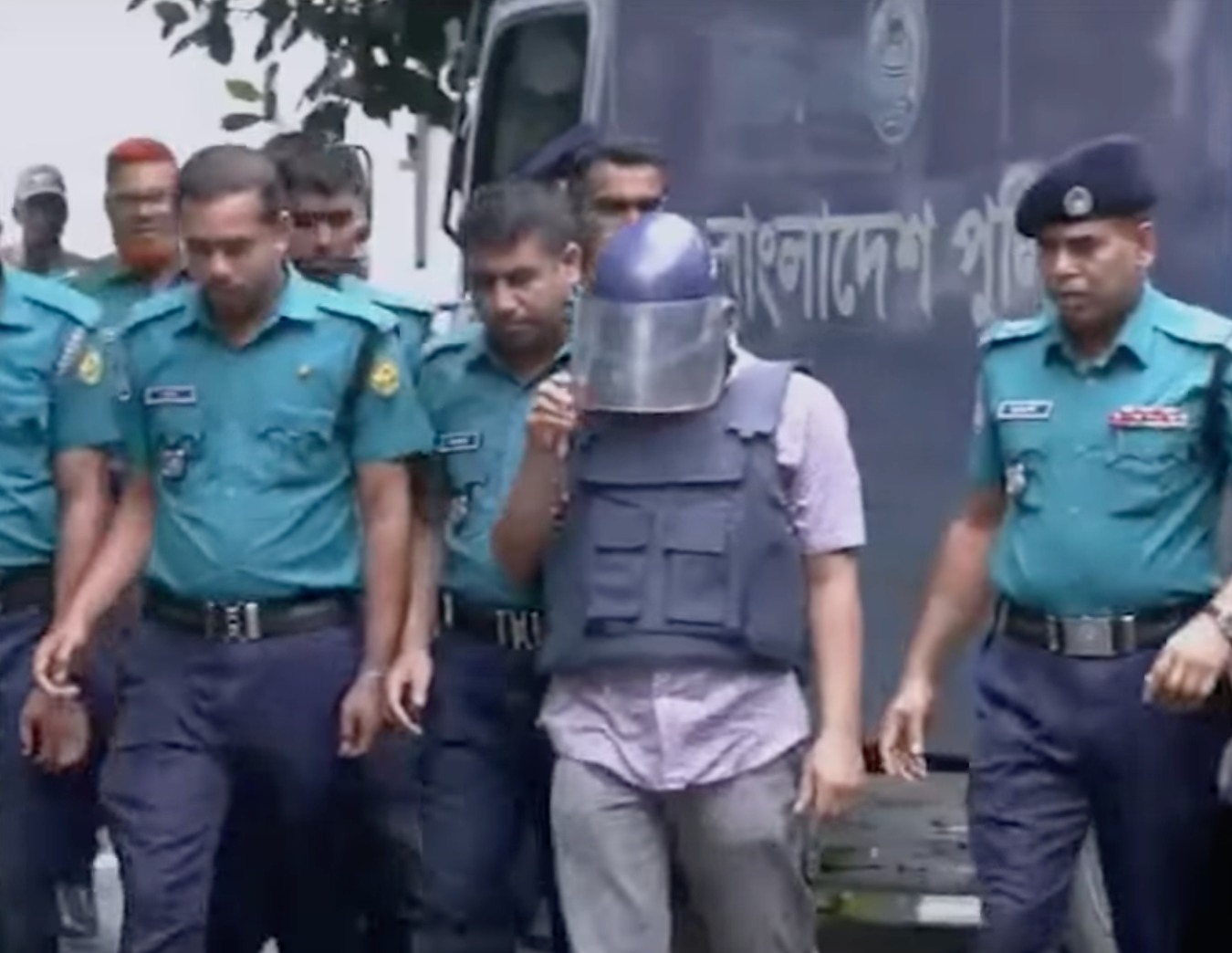Former Inspector General of Police Chowdhury Abdullah Al-Mamun has been produced before the International Crimes Tribunal on Sunday morning to testify against former Prime Minister Sheikh Hasina as a state witness in the case of crimes against humanity committed during the student-led mass uprising last year.
Mamun, once country’s top cop, was brought from Keraniganj Central Jail around 9:30am under tight security. He is the first major insider to testify in the case, which stems from the violent crackdown on unarmed civilians during the July–August 2024 uprising.
According to prosecutor Gazi M.H. Tamim, the tribunal’s proceedings began with the prosecution’s opening statement, followed by the first round of witness testimonies — including statements from several victims and survivors of the 2024 crackdown.
The trial marks the first time a head of government in Bangladesh is being prosecuted in absentia for crimes against humanity under international law. Arrest warrants have been issued for Sheikh Hasina and her then home minister Asaduzzaman Khan Kamal, both of whom are believed to have fled the country following the fall of the Awami League government last year. Their exact whereabouts remain unknown, and the court has invoked international legal provisions to proceed with the trial in their absence.
The International Crimes Tribunal, reconstituted in late 2024 to investigate atrocities committed during the mass uprising that led to the regime’s collapse, has received over 500 formal complaints. Four cases have moved into trial phase, including the one involving Sheikh Hasina, while investigations are nearing completion in six others. Among those under scrutiny are 17 top Awami League leaders, including Obaidul Quader.
On July 10, the tribunal’s three-member bench, led by Justice Md Golam Mortuza Mojumder, formally rejected petitions to dismiss the case against Hasina and her associates. The court ordered trial proceedings to commence, citing credible evidence of systematic abuses carried out under state authority during last year’s protests.
Chowdhury Abdullah Al-Mamun’s shift from accused to state witness marks a turning point in the case. Tribunal sources confirmed that Mamun has already provided a detailed confession, implicating several high-ranking officials in the command structure that allegedly oversaw and executed the violent crackdown. Legal analysts believe his testimony could prove pivotal in establishing the chain of command behind the crimes being investigated.
Hasina’s legal team, operating from abroad, has dismissed the tribunal as politically motivated. However, international observers and rights groups have cautiously welcomed the proceedings, noting that the tribunal appears to be adhering to due process.
As the first round of testimonies unfolds, attention now turns to the tribunal’s handling of evidence and witness protection — critical elements in a trial that could shape Bangladesh’s path toward post-conflict justice and accountability.


